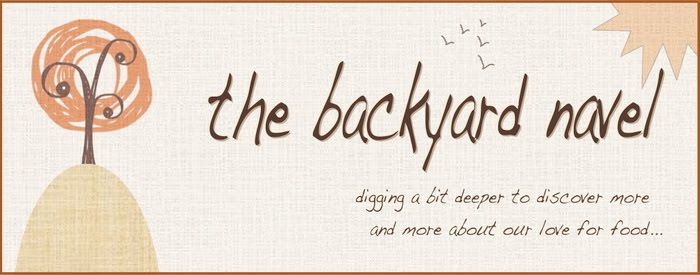i once worked at a restaurant that served two types of salmon. one type was five dollars less than the other, and obviously sold far more in quantity than that which cost more. this restaurant is one of many belonging to what is possibly the greatest seafood empire in the country, so diners certainly sit at its tables with a sense of trust, that regardless of what they order, by dining there they're treating themselves to something special. but let's really think about this. truly. if one piece of salmon is listed on the menu for $19.95, and the other for $24.95, shouldn't we be looking up from our menus, scratching our heads, and asking our table-mates, why?
so the question is now before you. seriously, why do you think this is?
well, let's start by building the differences between these two types of fish. the $25 salmon is from the wild, and the $20 salmon is not. reason enough for a difference of five bucks, right? if that's the case, and if the $20 salmon isn't from the wild, could you confidently answer if i asked you, where the heck is it from then? if it's not wild, what the heck is it?
and that's the problem that people grapple with. on the whole, the problems with fishing ethics are so tertiary in politics and media, so muted, that people just don't know what's going on. don't know where their food is coming from (which, funny enough, parallels the factory farming problem far too much). and that's because when it comes down to it, we're taught to understand that cows graze and do so on land, birds fly and do so through the air, and fish, well they swim, and swimming is only done through water. and water is something our planet has lots of, so there should be lots of fish. one plus one then equals: shouldn't all fish be from the wild? the answer is yes, but yet, somehow the laws of nature have been tinkered with, and now we have fish coming from that thing that cows, the land grazing animal, call home. farms.
so how about this: one salmon is from alaska, and the other is from the atlantic. now, do you know which is wild caught and which is farm raised? do you know why?
my guess is, most people know that alaskan salmon is the cream of the crop. i'd even go so far as to say this is one the first fish most of us had ever known. remember those nature videos from our childhood? disney was infamous for them, airing often on the wonderful world of disney, remember? the stunning wildlife images of a day in the life of a grizzly bear? of the bear lurking over a shallow stream, her paw swiping at the water and pulling from it a flopping fish? and that fish, the one she'd strip clean of flesh and feed to her cubs, well, that's wild alaskan salmon. and yes, we pay top dollar for it.
but why does it cost so much more than atlantic salmon? hell, if it's atlantic salmon, it's got to be wild too, right?
on friday, mark bittman wrote this in his blog about "discovering alaskan king salmon:"
What an odd history salmon has had, not only in my lifetime but in the history of the world. (There was once so much salmon in the rivers of the Northeast that according to some historians, servants complained about being fed the fish too often. Supposedly.)
Like so many baby-boomer East Coasters, I experienced salmon first as a canned fish. (Tuna too, of course. Who knew?) It was also an absolute luxury item at white tablecloth restaurants; I might have eaten it fresh two or three times – max – in the 60s and 70s. That’s because Atlantic salmon (of which there is only one species) had become not only overfished but endangered. (You can’t sell wild Atlantic salmon commercially.)"you can't sell wild atlantic salmon commercially." did you catch that? do you realize the weight of those words? they're telling us that to all but a small minority of this world, true atlantic salmon, the stuff that makes its home the way nature intended, in the wild, does not exist. so what then is this stuff called "atlantic salmon?"
so what is this mystery fish? and why does it dominate restaurant menus all over the country? again, we'll find a parallel to the corporate giants who have decimated our country's beef, pork, and poultry farming. the shades might be drawn when it comes to the dirty work, but make no mistake these corporate entities are slipping in and out of bed with the world's governments night after night.
spend the three minutes it takes to watch the video below. it's three minutes spent better than almost anything else you could be doing right now, including reading this blog post. again, so much of america's problem when it comes to food is the lack of knowledge we have about what it is, and where it comes from.
i realize how difficult it is to sit down and spend twenty minutes, let alone the three it took to watch that clip, but that's how long this documentary is. just twenty minutes. and in twenty minutes, you're learning more about this food than you've ever known about it. if that's not enough to convince you to watch the entire film, what is?
and that seafood restaurant i worked at in boston? it's called legal sea foods. yeah, you might've heard of it. when the company brought wild alaskan salmon to all of its restaurants six years ago, here's what roger berkowitz, the ceo and president of the giant chain, had to say about wild alaskan and atlantic salmon:
There's nothing wrong with farmed salmon. It's perfectly fine to serve. But wild salmon has different flavor characteristics. It's more interesting. And we're in the fish business--it's incumbent upon us to offer products that others would have trouble getting.apparently, they're having trouble getting the wild stuff just like everyone else now. incumbent, or not.
(legal sea foods' wood-grilled salmon,
no. the trouble roger berkowitz, and the rest of the consumers who purchase and sell atlantic salmon (and we're talking a massive amount of people here) have is an environmental trouble. it's a trouble that for those of us living today, especially those of us completely detached from our planet's well being, is irrelevant. it's as pesky as a house fly buzzing though the kitchen on a summer day. we can just ignore the thing and get by just fine, and leave the problem for someone else to deal with later on.
(sea lice, a tremendous infector of atlantic salmon,
changes are being made to farming methods, but is it too late? and is change coming fast enough?
but americans want to eat good food, and do so with as little damage inflicted upon their checking accounts as possible. and, i have to imagine, roger berkowitz (a semi-finalist of the recently announced james beard award for outstanding restaurateur) is only too pleased to oblige.











